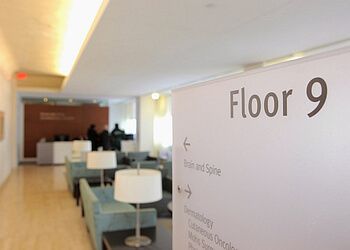
Are you Dr. THEODORE H. SCHWARTZ? Click to verify and gain editing access.
THEODORE H. SCHWARTZ MD
CONDITIONS TREATED:>Head Trauma, Head Injuries Surgery, Rheumatoid Arthritis, Parkinson's Disease and Movement Disorders, Scoliosis, Spinal Tumors, Spinal-Fracture & Vertebroplasty TREATMENTS OFFERED: Spine Surgery, Pediatric Neurosurgery, Simple and Complex Spine Surgery for Degenerative Conditions, Tumors and Trauma Surgery, Surgeries for Brain Tumor, Neuro-oncology, Pituitary and Neuroendocrine, Brain-Metastases, Prolactinoma, Pituitary Tumors, Adult And Pediatric Epilepsy, Skull Base & Minimally Invasive/Endoscopic Neurosurgery in New York City
Available Timing
- Mon-Fri: 9am - 5pmSat & Sun: Closed
Clinic/Office Photo

About THEODORE H. SCHWARTZ
Introducing Dr. Theodore H. Schwartz, a highly respected neurological surgeon specializing in brain tumor and epilepsy surgeries. Dr. Schwartz obtained his medical degree from Columbia University College of Physicians and Surgeons and completed his residency at New York-Presbyterian Hospital/Columbia University Medical Center. Known for his dedication to advancing medical research, he actively participates in various clinical trials focusing on cutting-edge approaches including radiolabeled antibodies, vaccines, and implanted devices for brain tumor treatment using chemotherapy. Utilizing state-of-the-art intraoperative technologies such as brain mapping, minimally invasive imaging, and invasive endoscopy, Dr. Schwartz ensures optimal treatment outcomes. He is a co-author of two significant books on endoscopic skull base and pituitary surgery and has been featured on prominent media outlets like NBC, ABC, and CBS.Currently serving as the director of the Center for Epilepsy and Pituitary Surgery and Co-Director of Surgical Neuro-oncology, Dr. Schwartz leads an NIH-funded laboratory pioneering new brain mapping techniques with optical recording technology. He is actively engaged in several clinical trials focused on brain tumor treatments using innovative methodologies. Dr. Schwartz has been honored with multiple awards recognizing his groundbreaking work from prestigious institutions such as the NIH, the American Association of Neurological Surgeons, and others.Key features of his practice include the acceptance of new patients, telehealth appointments, and the acceptance of various insurance plans.